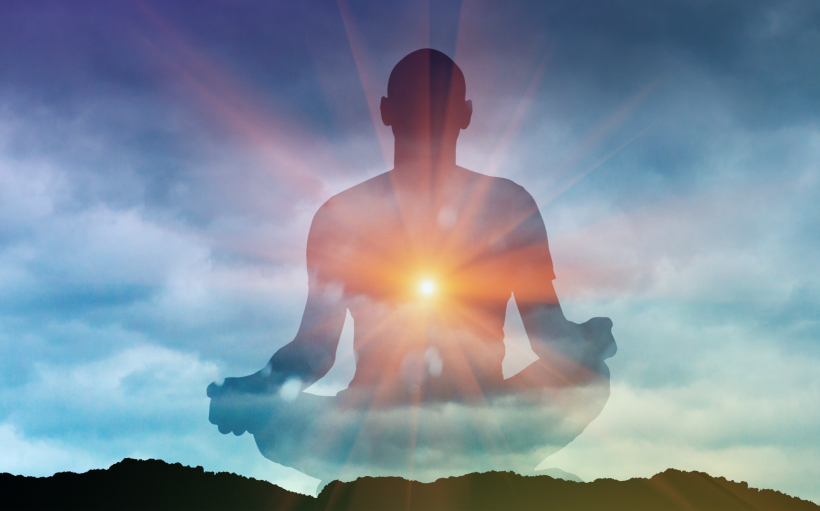After taking a required Intro to Psychology course as an undergrad, I have never looked back. Since my doctoral program, I have specialized in adult relationship therapy. Through my studies and clinicals, I wrote several articles for professional journals and currently in the midst of writing a book.
Step Into Your Spiritual Awakening Path
Spiritual awakening is usually associated with Buddhist monks who live in a world of spiritual enlightenment, having chosen a path that addresses the greater reality. But this can happen in other religions: Christians, for example, would recognize Jesus as spiritually enlightened, and Muslims would say the same thing about Mohammed. And even more, each person can experience a spiritual awakening moment.
But how do “common” people become spiritually enlightened? What do they do to get there? Let’s examine what it takes to start the spiritual path from a spiritual awakening experience, meaning a powerful moment that results in a profound transformation of living.
What Brings About a Spiritual Awakening?
“Spiritual awakenings can be spontaneous, but for most, they are triggered by major life changes or traumas.”
Shannon Kaiser, author and life coach
Spiritual awakening doesn’t start sweet. The most common cause of a spiritual awakening is trauma – something as serious as near-death or out-of-body experiences, like losing a job, a painful divorce, or the death of a loved one. Common spiritual awakening triggers can also include mental health crises.
After the cause, the person gains spiritual insights and a deep sense there is something beyond the life they have been living. It feels like a new reality beyond the material world in which they have immersed themselves in their daily life. This is the start of a spiritual journey that will bring about changes in thought and behavior.

9 Signs of Spiritual Awakening
Now, the spiritual awakening process (or spiritual journey as some call it) may vary among individuals, but there are common factors to spiritual awakenings that everyone on this spiritual journey will ultimately have.
1. Detachment Feeling
Spiritual awakening is accompanied by a feeling of “detachment” from life, things, and people. This doesn’t mean you stop operating in your daily lives; it just means having a different perspective.
The details and material possessions become less important as you gain a deeper understanding of who you are. Spiritual leaders often term this the difference between the small “I” and the big “I.”
2. Beliefs and Priorities Change
As you form a deeper connection with their larger selves, you will take up new spiritual practices – meditation, changing churches, and perhaps even seeking new employment that satisfies their true interests/passions. These are the new elements of your emerging identity.
3. Letting Everything Go
In a spiritual journey, the need for control goes away. Everyone is on their own journey, and it’s not up to you to try to control what that is. So, you don’t argue or criticize – you become more accepting of everyone. Proving yourself right doesn’t work for you any longer.
Related reading: 11 Warning Signs of a Controlling Boyfriend and Why They Are Not OK
4. Searching for a Deeper Sense
Under spiritual awakenings, you start seeking meaningful connections with like-minded individuals. This may mean that some relationships change.
The point is not to cut off those who don’t “get you” anymore. It is simply to ask them to respect your journey and let them go if they won’t do this.
5. Serving Others Becomes Important
You develop a heightened sensitivity to the needs of others and develop more feelings of compassion and increased empathy when passing through spiritual enlivenment. You start looking for ways to serve – volunteering in homeless shelters or soup kitchens, for example.
6. You Love Unconditionally
You start feeling unconditional love for all of mankind, no longer seeing separations by race, political beliefs, or gender. This is part of a wider perspective of humanity, something often lacking in the Western world.
Related reading: Unconditional Love – Fantasy or Reality?
7. You Gain Wider Perspective
Ultimate enlightenment does not mean retreating from the world, although some, like those Buddhist monks, may choose to do so. Their spiritual awakening gives them a higher sense of the true nature of the big “I” and they function with increased awareness of everything.
You see beauty in all of nature and a greater sense of the interconnectedness of all living things.
8. Interest in Spiritual Practices
You engage in different spiritual practices than before, spending more time alone in contemplation, meditation, or yoga. You make time for spiritual growth now, making spiritual progress a priority in your daily life.
Also, your physical symptoms are sharper, and your senses become keener. You may see more animated dreams or even experience some insomnia, brain fog, or fatigue.
9. Embracing the Power of Now
You practice living in the present moment without worry or anxiety about the past or the future. Your intuition heightens. We all experience this, but it is much stronger as a spiritual awakening progresses.
With this, you have a newfound curiosity for everything around them. You want to know how their new sense of self fits into the larger picture.
7 Stages in the Spiritual Awakening Process
How does it all play out in your waking life? To answer this question, we’ll introduce Shannon Kaiser’s spiritual awakening stages. Let’s track the transformative experience of a spiritual awakening in this section.
1. Questioning Everything
The initial spiritual awakening begins as you start questioning everything you have known and believed for at least the first quarter of your life. You know something has been missing, and you start to clear things out of your path, looking at new things to replace them. You may feel confused, a bit depressed, and lost.
2. Everything Burns
Kaiser calls this stage the “dark night of the soul” – a period during which you have discarded the old habits, thoughts, beliefs, and even relationships from your ego and original self. You are feeling alone and maybe even a bit desperate. Take heart – you are being pushed to make some real changes.
3. Trying Something New
This is the curiosity and the “sponge stage.” It’s the stage of your spiritual experience when you experiment, try new things, and explore your new spiritual world and your place in it. As you have new spiritual experiences, you get a deeper sense of where you feel called to be.
Related reading: 36 Moving On Quotes to Help You Move Forward
4. The Awakening Moment
Kaiser calls this the Satoru Self phase. This is a Japanese phrase that means “awakening.” Here, your spiritual side shows itself, and you understand how these deeper insights mesh with your skills and talents and how you can use them in your new consciousness.
5. Testing Waters
These are when you spend time building your new life based on your spiritual awakening. This may take some time, involving trial and error and requiring various strategies to achieve your ideal spiritual life. Ultimately, you will settle into how your soul growth drives your new nature.
6. Letting Ego Go
This is the stage in which you “surrender” all of the last vestiges of your ego, old habits, and even some relationships that hinder your self-discovery and the ultimate achievement of your true nature. Here, you will shed anything that impedes your full spiritual awakening.
Related reading: Insecure Men: How a Fragile Ego Can Ruin Romance
7. Awareness
You have had growing heightened awareness all along your journey of spiritual awakenings. Your heightened sense of moving toward a higher consciousness has caused some life-changing events and struggles, and the journey has now always been an easy one:
- You are now no longer serving your ego
- You are connected to everyone in the world around you
- You live a life of service to others
All in all, you have reached the state of full enlightenment. And best of all? You have the contentment and true happiness that come from living in the moment and feeling connected to all living things.
Eckhart Tolle’s Spiritual Awakening Story
Eckhart Tolle is considered by many to be the ultimate guru of the nature of spiritual awakening. Here is the personal story of how he achieved his spiritual awakening, enlightenment, true nature, and calling.
Tolle suffered from severe depression. One night, he says, he woke up in a severe state – his dark period:
“I couldn’t live with myself any longer. And in this a question arose without an answer: who is the ‘I’ that cannot live with the self? What is the self? I felt drawn into a void! I didn’t know at the time that what really happened was the mind-made self, with its heaviness, its problems, that lives between the unsatisfying past and the fearful future, collapsed. It dissolved. The next morning I woke up and everything was so peaceful. The peace was there because there was no self. Just a sense of presence or “beingness,” just observing and watching.”
This is how can a spiritual awakening feel. It happens spontaneously – not for many, but certainly for him. His dark night was ending, and he was entering the “sponge stage,” observing and experiencing everything around him and feeling a deeper connection with an environment that had become fully peaceful.
Tolle began to put his feelings into action and began a path of counseling students in the London area. Ultimately, he landed in Vancouver where he began to write books.
The Power of Now, a treatise on living in the moment as a path to spiritual awakening, gained recognition and quick popularity, and when Oprah Winfrey recommended it, the rest became history.
Today, Tolle continues to write, is a featured speaker all over the world, and even produced a series of webinars with Winfrey, each one featuring a chapter of his first book, followed by further teaching and meditation. He has also been named the most important spiritual writer in America.
How About You?
Do you ever say to yourself, “Is this all there is?” as you look at your life? Is there some kind of a nagging itch that you can be more than you are? Are you tired of division, discord, and chaos? Your inner self may be pushing you toward a path of spiritual awakening. Embrace it.








